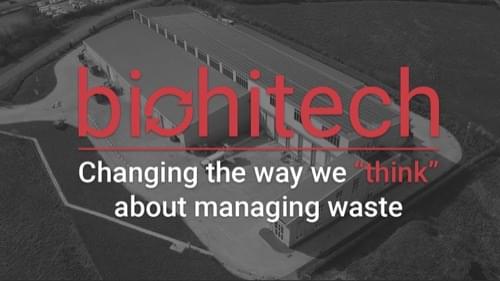
Technology

In North America the utilization of alternative fuels derived from waste is still at an early stage, however, the right conditions are developing quickly:
- • The increasing attention for renewable energy and to reduce dependency from imported fossil fuels
- • The upward trends of landfill fees and landfill diversion policies
MBT is the process of treating unsorted, residual MSW in order to achieve either the reduction of the organic content within the waste or for the production of a solid recovered fuel (SRF). SRFs are prepared from non-hazardous waste to be utilized for energy recovery in industrial power plants, waste co-processing plants, and cement kilns. SRF differs from RDF (Refused Derived Fuels) in the fact that it is engineered fuel which meets minimum specifications for calorific value (i.e., the energy derived from combustion) and emission standards. For SRF production, the waste fraction with the highest calorific value is used which minimizes the process residue and lowers the absolute value of overall emissions. The final SRF products are generally used as an alternative or supplement to fossil fuels, in particular that of coal. Typical end users include cement manufacturers and power plants.
The use of MBT technology focuses on the manufacturing of an alternative fuel product as opposed to converting waste to energy within the same facility. There are significantly fewer regulatory requirements since there is no combustion at the facility. Our MBT facility is essentially a material recovery facility, which is widely accepted in the United States. The by-product is a cleaner burning fuel than most fossil fuels with comparative calorific values. MBT facilities are significantly less expensive to build and operate and greenhouse gas emissions are significantly lower.
The MBT process, the SRF production, and the use of SRF are well established in Europe, with over 300 MBT plants throughout Europe today.
The cement industry in United States is eager to procure alternative engineered fuels and because of regulatory changes there are significant market opportunities resulting in the expected growth of SRF. The demand for solid recovered fuels from cement and power industries continue to grow with more pressure on energy independency.
Entsorga WV offers a solution to our nation’s growing solid waste and fossil fuel issues.